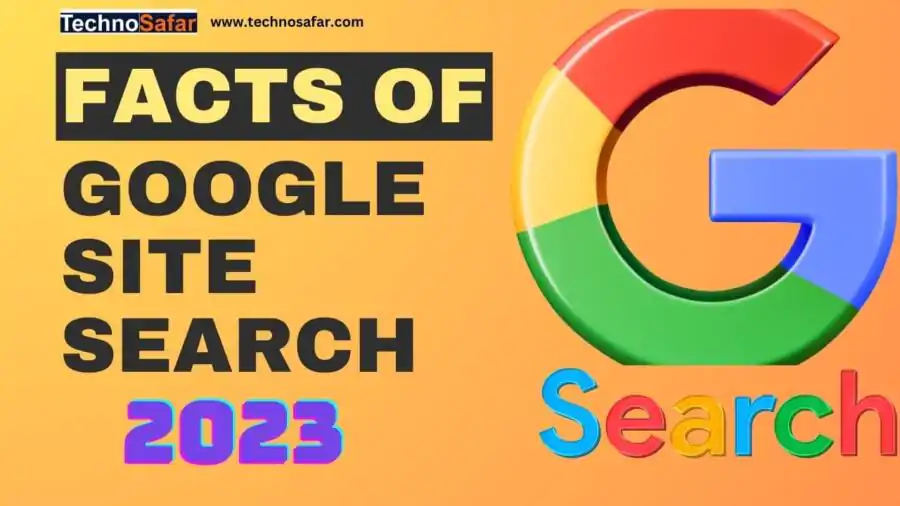Google Site Search
Google Site Search, also known as Google Custom Search Engine (CSE), was a service provided by Google that allowed website owners and developers to incorporate a Google-powered search engine into their websites. Through Google Site Search, users could search the contents of a specific website using Google’s search technology, making it easier for visitors to find relevant information within the site.
In this essay, we will explore the history, features, benefits, and eventual discontinuation of Google Site Search. Additionally, we will discuss alternative solutions that emerged after its discontinuation.
Read Also: 100 Search Engines Lists – World’s Top Best Search Engines
History of Google Site Search:
“Google Site Search was introduced in 2008” as a customizable search solution for websites of all sizes. It aimed to provide an easy and efficient way for webmasters to integrate Google’s powerful search capabilities into their websites, allowing users to find content quickly and easily. This service was particularly beneficial for businesses, educational institutions, and organizations that wanted to enhance their site’s user experience.
Google Site Search Features:
Google Site Search offered several key features that made it a popular choice for website owners:
- Customization: Website owners could customize the appearance of the search bar and search results to match their site’s design, providing a seamless user experience.
- Relevance: The search engine utilized Google’s powerful search algorithms, ensuring that search results were relevant and accurate, even for complex queries.
- Language Support: Google Site Search supported multiple languages, enabling users to search for content in their preferred language.
- Control over Search Scope: Website administrators could control which pages and sections of their site would be included in the search results, ensuring that only relevant content was displayed.
- Analytics: The service offered detailed analytics, giving website owners insights into user search behavior, popular queries, and overall search performance.
- Mobile-Friendly: Google Site Search was designed to be mobile-friendly, ensuring that users on various devices could access and utilize the search function effectively.
- Ad-Free Option: Website owners had the option to remove ads from the search results, providing a more streamlined and professional appearance.

Benefits of Google Site Search:
Google Site Search brought numerous benefits to website owners and users alike:
- Enhanced User Experience: By integrating Google’s search technology, website owners could offer their visitors a familiar and efficient search experience, improving user satisfaction.
- Improved Content Discoverability: With accurate and relevant search results, users could easily find the information they were looking for, reducing bounce rates and increasing engagement.
- Time and Cost Savings: Implementing a custom search engine from scratch would have been time-consuming and expensive for many website owners. Google Site Search provided a cost-effective solution.
- Credibility and Trust: Leveraging Google’s brand and reputation in search helped establish credibility and trust in the search results displayed on the website.
- Data Insights: The analytics provided valuable data on user behavior, allowing website owners to optimize their content and identify areas for improvement.
Discontinuation:
Despite its popularity, Google Site Search was eventually discontinued by Google in 2017. The decision to discontinue the service was met with disappointment from many website owners who had come to rely on its features and functionality. The primary reason cited for the discontinuation was a strategic shift in Google’s business focus. The company chose to prioritize its core products, such as Google Search and Google Ads, and as a result, several less popular services, including Google Site Search, were phased out.
Alternative Solutions:
Following the discontinuation of Google Site Search, website owners had to explore alternative solutions to meet their search needs. Some of the alternative options included:
- Google Custom Search Engine (CSE) (Free Version): Google introduced a free version of Custom Search Engine, which offered similar functionality to Google Site Search, but with some limitations, such as displaying ads in the search results.
- Third-Party Search Providers: Various third-party companies emerged to fill the void left by Google Site Search, offering customizable and feature-rich search solutions for websites.
- Self-Hosted Search Engines: Some website owners opted to deploy self-hosted search engines using open-source software like Elasticsearch, Solr, or Algolia. These solutions provided greater control over search functionality and data privacy.
- WordPress Plugins and CMS Integrations: For websites built on platforms like WordPress, developers could use plugins and integrations to add search functionality, both free and premium.
Google Site Search: Unraveling its Capabilities and the Pursuit of Plagiarism-Free Content
The internet has revolutionized the way we access information and has become an indispensable tool for research and knowledge acquisition. To navigate this vast digital landscape effectively, search engines play a crucial role in facilitating information retrieval. Google, being one of the most popular search engines, offers various tools and services to improve user experiences, among which Google Site Search has been a prominent feature. This article delves into the functionalities and significance of Google Site Search while emphasizing the importance of producing plagiarism-free content in a world dominated by the internet.
1.) Introduction
The advent of the internet has given rise to a deluge of information, and search engines like Google have become essential in organizing and presenting this data effectively. Among the array of services provided by Google, Google Site Search has been a valuable tool for website owners and users alike. This article seeks to explore the capabilities of Google Site Search and delve into the necessity of generating plagiarism-free content in the digital era.
-
Understanding Google Site Search
2.1 What is Google Site Search?
Google Site Search, formerly known as Google Custom Search, is a service offered by Google that enables website owners to integrate a customized search engine on their websites. This search engine can be tailored to focus on specific domains, ensuring that users can explore content exclusively within the designated site.
2.2 Features and Benefits
This section highlights the various features and advantages of Google Site Search, including its ease of implementation, customizable search results, and seamless integration with existing website designs. It also discusses how the service enhances user experiences and increases website usability.
3.) Plagiarism: A Menace in the Digital Realm
3.1 The Definition and Scope of Plagiarism
To understand the gravity of plagiarism, this section clarifies the concept of plagiarism and the different forms it can take, including textual, structural, and idea-based plagiarism.
3.2 Consequences of Plagiarism
The consequences of engaging in plagiarism can be severe, affecting not only individuals but also the academic and professional community. This section highlights the ethical, legal, and reputational repercussions of plagiarizing content.
-
The Importance of Producing Plagiarism-Free Content
4.1 Academic Integrity
In academic settings, maintaining academic integrity is crucial to promoting original research and knowledge creation. This section underscores the significance of producing plagiarism-free content to uphold academic standards.
4.2 Ethical Responsibility
As content creators, writers have an ethical responsibility to respect intellectual property rights and acknowledge the contributions of others. This section discusses the role of plagiarism-free content in promoting ethical writing practices.
4.3 Search Engine Optimization (SEO) Benefits
Creating original content not only benefits the content creators but also plays a pivotal role in enhancing a website’s SEO. This section explores how plagiarism-free content positively impacts search engine rankings and visibility.
-
Tools and Techniques to Avoid Plagiarism
5.1 Citation and Referencing
Citation and referencing are fundamental practices in academic and professional writing. This section elucidates the importance of proper citation methods in avoiding plagiarism.
5.2 Anti-Plagiarism Software
The rise of technology has brought forth various anti-plagiarism software solutions that help identify and prevent instances of plagiarism. This section introduces some popular anti-plagiarism tools and their functionalities.
-
Google Site Search and Content Originality
6.1 How Google Site Search Encourages Original Content
Google Site Search can play a vital role in encouraging original content creation by enabling website owners to focus on authentic and unique material. This section highlights how the search feature influences content development.
6.2 Checking for Plagiarism Using Google Site Search
Website owners can also utilize Google Site Search to identify potential instances of plagiarism on their websites. This section demonstrates how to leverage this tool to ensure content authenticity.
-
Conclusion
In conclusion, Google Site Search emerges as a powerful tool in the digital realm, facilitating effective information retrieval and website navigation. Nonetheless, in a world dominated by content sharing and accessibility, the pursuit of plagiarism-free content remains imperative to foster academic integrity, and ethical responsibility, and enhance online credibility.
By embracing the capabilities of Google Site Search while prioritizing content originality, content creators can contribute to a more authentic and trustworthy digital landscape, creating a win-win situation for both website owners and users.








